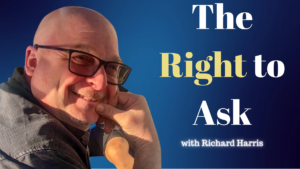
Blog
Notes:
Sales Engineering is not the oldest job in the world, but it has been around for a long time. It might not have been known as Sales Engineering, but the job done was that of a Sales Engineer. Our guest for this episode is Anthony Campanale. He fell into the role close to 30 years ago, and he has been doing it since.
Anthony Campanale is currently the Senior Solutions Consultant at Cheetah Digital. He has worked as a principal, SaaS, presales, associate, internet marketing, and technical consultant and analyst for the past 2 decades for different companies. He revealed that his interest was not in delivering the solution, has been curious about how technology can solve problems because of the Apollo 11 Space Mission when he was Seven, and being a hybrid didn’t work for him.
Key Takeaways:
- How he realized he was doing an SE’s job than what he was hired for after 2 years of working
- When and what drove him to be interested in technology
- Uncovering unconsidered needs that the customer doesn’t really articulate upfront
- How to make customers share more information without upsetting them
- How to do thorough research to come up with intelligent questions
- How Anthony’s way of discovery differs from the Account Manager’s discovery
- Why Anthony’s time as both an account manager and presales consultant only lasted a year
- Anthony’s and Ramzi’s ideal ratio of SEs and AEs working together
- How did Sales Engineering change over the years
- Anthony’s elevator pitch on why he stayed being an SE for over 20 years now
Quotes:
“I realized I could be of value to them because they didn’t have any writing skills, they didn’t have any demo skills. And it was kind of like I fell into it. I kind of moved into this role of support of providing technical expertise and helping the sales guys get deals over the line.” –Anthony Campanale
“We had a bunch of business analysts, but I think I was probably the only one who really had the aspirations to work with the salespeople in actually going out there and winning the business in the first place.” –Anthony Campanale
“If you google Tim Rice and you’ll go on YouTube, he talks about the importance of digging into the unconsidered needs, these are the needs that the customer doesn’t really articulate upfront, or as being as their primary pain. But these are the things where you can deliver additional value over and above what they may articulate at the beginning during discovery.” –Anthony Campanale
“I’ve never found anybody hostile when I’m asking very specific, tailored questions that are not too broad. I’ve actually shown that I’ve taken the steps to at least understand their domain, their niche, the language, and some of the kinds of considerations and threats that might be impacting their industry. As long as I’m asking intelligent questions.” –Anthony Campanale
“If I don’t have the chance to do the discovery directly with the prospect, then I’ll get on a few prep calls with the AE or the CSM, whoever’s got the relationship, and get them to articulate and tell me exactly what went on.” –Anthony Campanale
“Microsoft was a Gold partner. And we were kind of selling content management systems and the Microsoft suite at the time. But I was there just about a year and it didn’t work out at all. I did a bit of both role, but it really didn’t work out.” –Anthony Campanale
“Now there’s obviously a ton more assets in terms of enablement around being an SE. There have been books written, there are websites, there’s you. There was the online demo fest last week. There was none of this stuff back then when I got started.” –Anthony Campanale
Links from the show:
John Care’s books, speaking engagements, training, and masterclasses – John Care | LinkedIn
Steve Capper’s YouTube Channel and LinkedIn – STEVE CAPPER – YouTube, Steve Capper | LinkedIn
Don Carmichael’s mentorship, podcast, keynotes, workshop, and consulting
Don Carmichael, Don Carmichael | LinkedIn
Connect with Anthony Campanale on LinkedIn: Anthony Campanale | LinkedIn



